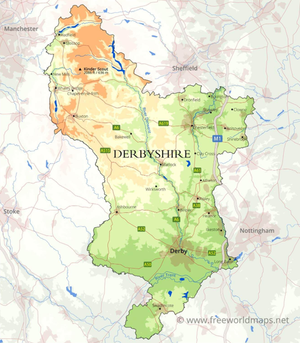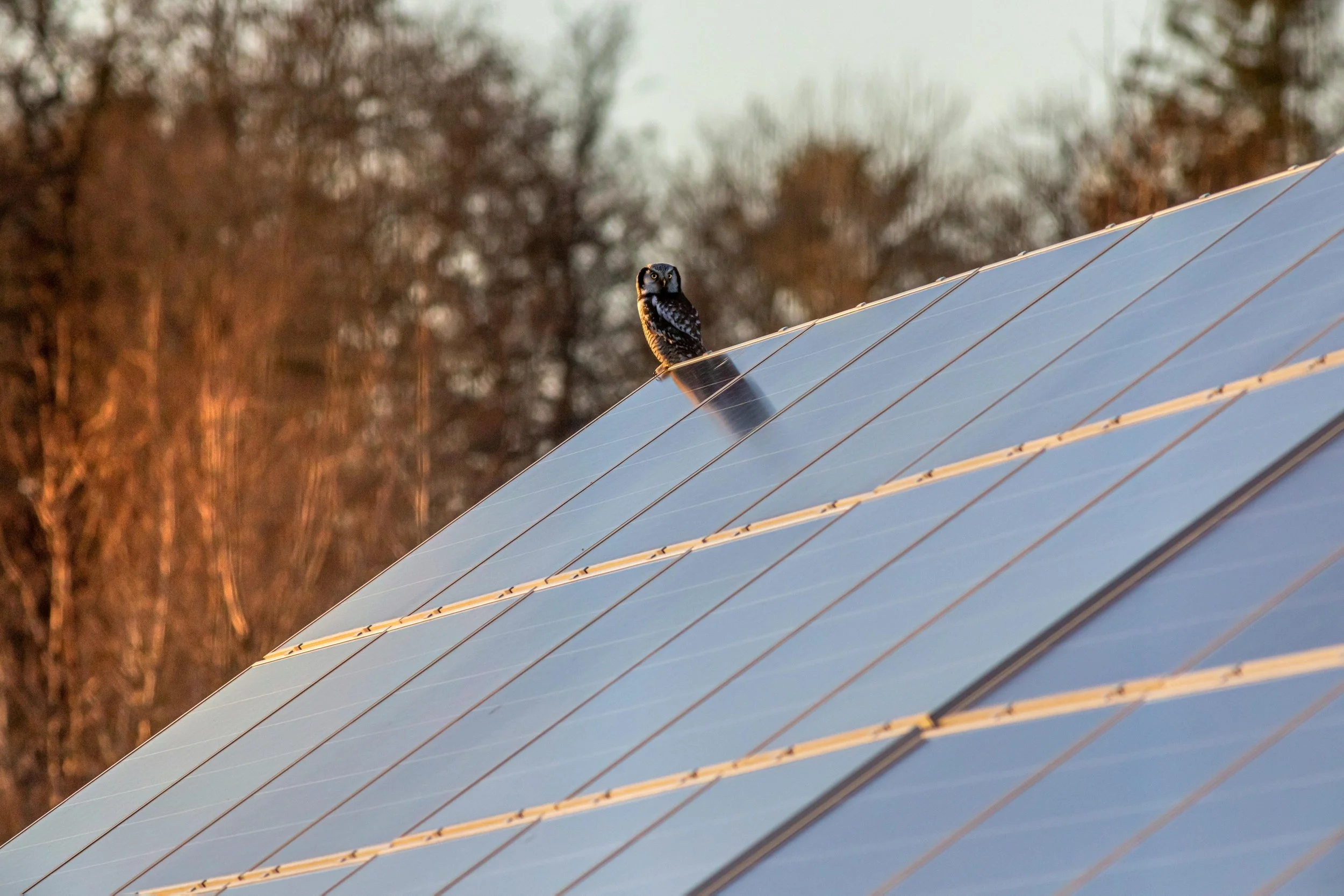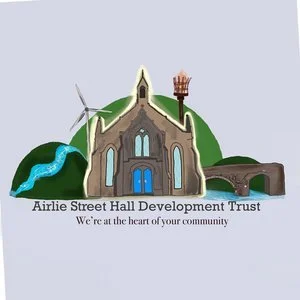In 2022, Scene conducted 10 detailed assessments of community halls throughout the Scottish Borders on behalf of The Bridge, a charity organisation seeking to support community-led decarbonisation and enable the continued existence of community halls, as an important space for local identity and social cohension.
Powering Parks is a project by Possible, Hackney council and Scene. We have been investigating the potential for installing heat pumps in Hackney’s parks to provide heat to nearby buildings. If successful, it has the potential to tackle climate change, improve air quality and generate income for councils and park authorities to re-invest locally.
In 2020 - 2022, Scene conducted a feasibility assessment for solar PV, battery storage, and EV charging at the Galaxy Sports facility in Grangemouth, Scotland. The study developed into a viable project which was implemented during 2022 and continues to operate, providing clean energy to the site, powering LEDs for the site's sports fields, and charging visitors electric vehicles.
Much like the rest of Scotland, the island of Canna is balancing its need for future development with the goal to decarbonise its energy. Canna currently has Solar PV, wind turbines generating energy on the island, with back-up diesel and a storage battery. However, a lot of this renewable energy is wasted when excess energy is produced, meaning the island is still heavily dependent on oil as a fuel source. In 2021 - 2023, Scene worked with the island of Canna to better understand their energy flows and to optimise energy use on island.
Scene was appointed to conduct a low carbon options appraisal for the Iqra Learning Centre (ILC), a religious community centre based at West Hurlet House in the South of Glasgow. Scene conducted energy, technical, financial, and environmental modelling work, providing practical next steps and recommendations for the ILC to reduce its carbon footprint and energy bills through the conversion of the existing off-grid gas systems to low carbon heating systems, alongside supporting low carbon technologies including additional Solar PV, battery storage, and roof insulation.
The William Scott Abbott Trust (WSAT) secured funding through the UK Government Rural Community Energy Fund (RCEF) to undertake a feasibility study to explore low carbon energy generation, demand reduction, and mobility options at its Sacrewell Heritage Farm and Country Centre near Peterborough. The study was undertaken between April 2022 – August 2022, comprising a baseline spatial and energy assessment; technical, financial, and commercial modelling to assess primary opportunities; and a project roadmap for onwards development of shortlisted options.
Scene Connect Ltd. ("Scene") was appointed by the Othona community ("Othona"), to prepare and submit a planning application for a proposed wind turbine at its site near Bradwell-on-Sea, Essex. The work was organised into four broad work stages, to take place between January and July 2022.
Scene Connect Ltd. (Scene) was appointed to conduct a low carbon options and business appraisal for the Alt Housing Co-operative (AHC) in Liverpool, in partnership with North West Housing Services (NWHS), and Zero Carbon Liverpool City Region Ltd. (ZCL-CR).
In 2022, a feasibility study was conducted by Grantchester Parish Council with technical support from Scene and Townrock Energy, and funding form the Rural Community Energy Fund (RCEF). The project sought to define how a low carbon heating system could benefit Bildeston residents and businesses through reduced energy bills and carbon emissions.
A low carbon heat network feasibility study was undertaken by Scene during 2022 in the village of Bildeston, Suffolk. The project sought to define how a low carbon heating system could benefit Bildeston residents and businesses through reduced energy bills and carbon emissions. The feasibility study was conducted with the support of the Rural Community Energy Fund (RCEF) by Heating Bildeston, a not-for-profit group of Bildeston residents seeking to secure a low carbon future for Bildeston.
Cranleigh Parish Council (CPC) secured funding through the UK Government Rural Community Energy Fund (RCEF) to undertake a feasibility study into the viability of developing low carbon heat supply options and low carbon electricity supply within Cranleigh. The study was undertaken between May 2022 – December 2022 to understand the feasibility of Low Carbon heat supply options and solar photovoltaics (PV).
Scene is suspporting the Derbyshire, Derby City, and Peak District National Park local authorities with a spatial renewable energy assessment. This research will contribute to these Councils' local development plans and supplementary climate change regulatory guidance, by highlighting, modelling, and appraising key regions in the locality best suited for particular renewable energy generation and low carbon technology development.
CESET explores the potential of community energy to accelerate inclusive and clean energy transitions in Ethiopia, Malawi and Mozambique. The project is an attempt to create new trans sectoral capacity to deliver community-led energy solutions in the Southern and East African regions. As part of this effort, Scene is providing off-grid energy expertise to the CESET project, including research, design and implementation of a solar PV microgrid in Mozambique.
Photo Credit: Eco Life - Solar Power Systems
On behalf of the Airlie Street Hall Development Trust, Scene is developing a Community Investment Plan for local development within Alyth, Scotland. By gathering local input through a series of community workshops, discussions, and online events, Scene will produce an actionable plan for use of the community's revenue derived from the nearby community-owned wind turbine at the Welton of Creuchies.
Building on the Isle of Ulva's Redevelopment Masterplan, Scene is supporting the island to develop a plan for the sustaianble redevelopment and repopulation, after many decades of population decline and emigration.
Scene supported the ONE Carluke Community Energy Club (OCCEC) to appraise, design and install a community-owned renewable energy system to supply electricity to local consumers. The project investigated the potential for locally owned energy generation and distribution, including both physical and virtual local supply options.
Scene provided project development consultancy services to the Dundee Renewable Energy Society (DRES), supporting the construction of a solar array at the site of the James Hutton Institute research centre. Scene led the programming, budgeting and risk management activities, and represented DRES at several consultations with third parties. Scene oversaw the ground-mounted solar array and planning approval process. Following this, Scene led the procurement process to employ a reliable partner to construct the system.
Scene is working with Rhondda Cynon Taf County Borough in Wales to support the council's commitment to achieving net-zero greenhouse gas by 2030. As part of the ZUoS platform development, Scene is taking a systems based approach, to develop a net zero multi-vector heat, storage and electricity micro-grid solution.
The Arisaig Community Trust (ACT) is a charity established for the development of the community of Arisaig, a village on the West Coast of Scotland. ACT sought to explore low-carbon options to reduce their carbon footprint and generate additional income for community benefit.
Scene supported Energise Moray - a community partnership in Moray, Scotland - to investigate an emerging opportunity for the shared ownership of wind turbines at the nearby Clash Gour Wind Farm. Scene advised on the set up of a community investment body; evaluated the Clash Gour shared ownership opportunity; and developed a long-term roadmap for a Moray-wide renewable energy hub to support their net zero transition.





















